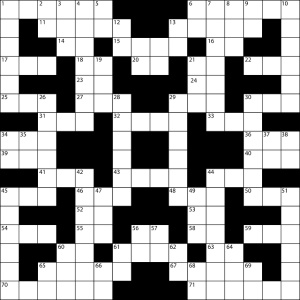silence, quiet, stillness ![]()
[noun]
[de stil-te, de stil-tes/stil-ten]
A "stilte" is a silence. Related adjective is "stil": silent, quiet, still. There's also the verb "stillen", which would literally translate to "to make quiet". "Stillen" is never used in this literal sense though. In Dutch, you can say for example "je dorst/honger stillen": to quench your thirst / satisfy your hunger.
Examples:
– "Stilte! Ik vermoord je!"
("Silence! I kill you!")
– "Er viel een grote stilte in de rechtszaal toen de moordenaar werd binnengebracht."
("A great silence fell in the courtroom when the murderer was brought in.")
– "Dit is wat je noemt een ongemakkelijke stilte."
("This is what you call an awkward silence.")
Expressions:
– "Een oorverdovende stilte": (lit.: an ear-numbing silence) a roaring silence.
Related words:
– Fluisteren: to whisper [verb] [fluisteren, fluisterde, h. gefluisterd].
– Lawaai: noise, tumult, uproar, racket [noun] [het lawaai, <no plural>].
Example:
– "Te veel lawaai hier, ik ben weg,
toedeledoki!"
("Too much noise in here, I'm
gone, cheerio!")
– Stil: silent, quiet, still [adjective].
Extra:
In Dutch trains, you may see so called "stiltecoupés". They are train compartments where it's not allowed to make noise… "Stiltecoupés" have windows with "SILENCE [S] STILTE" on them, and each compartment has stickers like the picture on the right. The exact "stiltecoupé" rules and rules of conduct are one of the best kept secrets in the Netherlands 🙂 and topic of many a discussion. The general idea is not to disturb your fellow passengers, but of course everybody has a different definition of "disturb"…

 An “antwoord” is a verbal or written reaction: an answer. “Antwoord” is composed of “ant” and “woord” of which the latter translates to “word”. “Ant” is probably from “anti”…
An “antwoord” is a verbal or written reaction: an answer. “Antwoord” is composed of “ant” and “woord” of which the latter translates to “word”. “Ant” is probably from “anti”… Een ‘raadsel’ in Dutch can be used in the meaning of riddle or mystery. Serious mysteries or enigmas however are called ‘mysterie’ or … ‘enigma’ 🙂 It is also more common to use the diminutive in case of a riddle: raadseltje. The word “puzzel” in Dutch is typically used for crossword or jigsaw puzzles.
Een ‘raadsel’ in Dutch can be used in the meaning of riddle or mystery. Serious mysteries or enigmas however are called ‘mysterie’ or … ‘enigma’ 🙂 It is also more common to use the diminutive in case of a riddle: raadseltje. The word “puzzel” in Dutch is typically used for crossword or jigsaw puzzles.